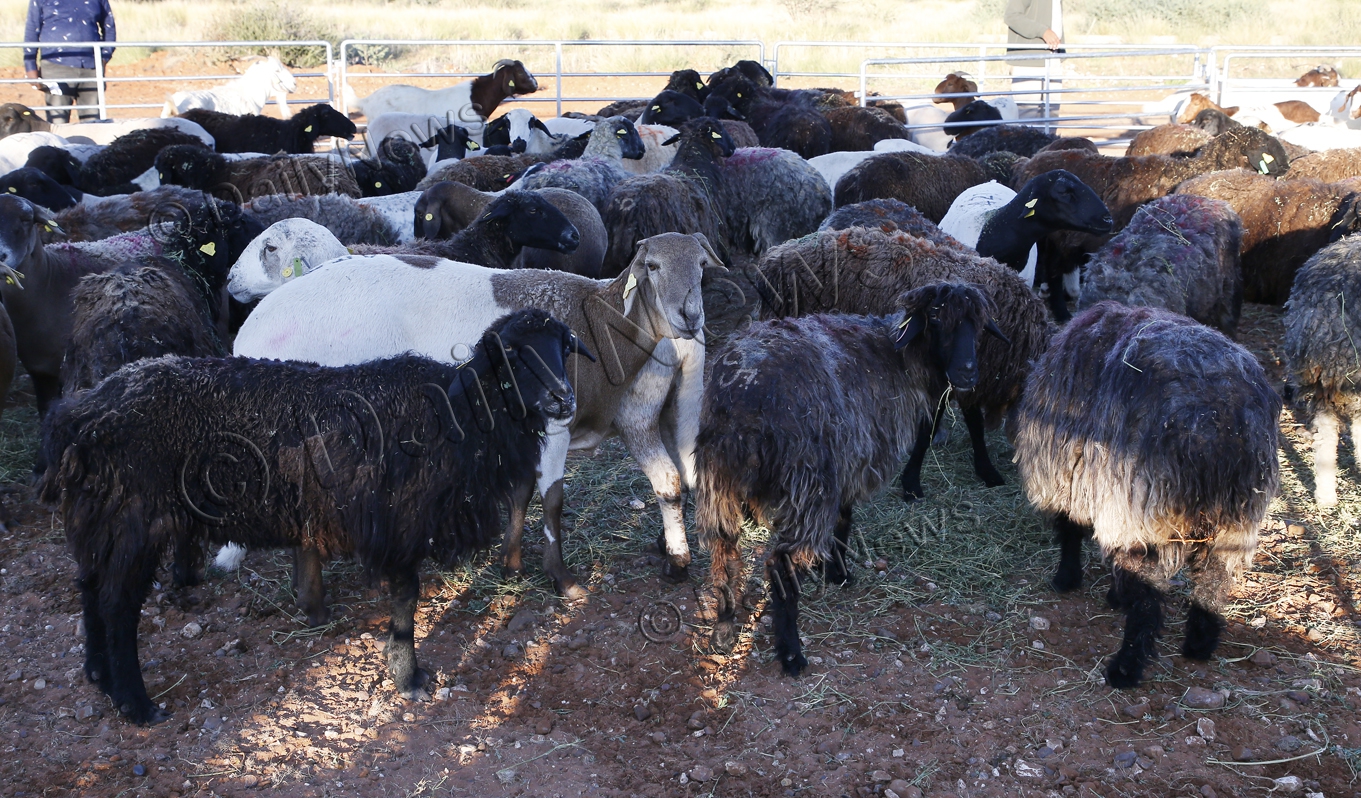Lobu set to revive Karakul pelt industry
15 Apr 2024
About 111km from Tsabong, along Tsabong-Bokspits road lies Lobu Smallstock Farm, which was set up by government to be a centre of excellence in breeding high-quality smallstock and studs.
Among its other objectives, Lobu Small Stock Farm is tasked with the responsibility of reviving Karakul sheep.
Karakul sheep was once so thriving an industry that it was dubbed the black diamond of the Kgalagadi, due to its rich shiny black colour and so high a value it almost matched the diamond.
Lobu Smallstock Farm manager, Mr Geoffrey Balogi indicated, in an interview, that although the farm was able to sell its Karakul pelts in Namibia, the revival of the Karakul industry was still facing some challenges because a Karakul flock should graze separately from the rest of the animals in the area.
Mr Balogi pointed out that most of Botswana farmers practiced mixed grazing, therefore the rearing of Karakul sheep was a challenge.
Karakul pelts, Mr Balogi added, easily lose their desired quality if the animals are kept in a mixed grazing area.
“Tsosoloso ya yone e teng mme e bonya ga ise e goroge kwa re batlang e ya teng (The revival of the Karakul industry is happening at a slow pace, it is not yet where we want it to be), Mr Balogi added.
Karakul sheep is mainly kept for its skin, which is harvested before the lamb turns 24 hours or a day old, as such it needs special tender treatment and technical knowhow.
Lobu farm alone cannot revive the Karakul industry, but farmers around the area through Lobu mentorship are encouraged to rear Karakul sheep.
The Karakul pelts from the Lobu farm are exported in a raw form, which has also been sighted as a challenge to the revival of the Karakul industry.
Mr Balogi said it could have been beneficial if the exportation of the Karakul skins was done after processing, which he opined could boost the quick revival of the inductry and help create jobs.
Besides selling Karakul skins, Lobu also breeds Karakul flock to ensure that farmers could learn or buy from the farm.
Currently there are two farmers in the region, who are into Karakul sheep farming for its skins and export purposes, though on asmall scale.
They, therefore, depend on Lobu farm to assist with exporting their products to Namibia, there the pelts are used to make high quality fur jackets and coats.
Mr Balogi also said they assisted Khawa Development Trust to secure the Namibia market.
For his part, Kgosi Piet Manyoro of Khawa said the village trust was yet to export to Namibia and they were pinning their hope on Lobu farm for the assistance in accessing the market for their products.
“Fa ba re mmaraka o buletswe re tlaa bo rona re simolola”, he said, meaning that the trust was ready with stock once the market ‘opens’.
He, however, said they had not yet stored any skins for export because they awere awaiting training on how to use the skinning equipment from Lobu farm.
Explaining how they managed to solve the mixed grazing issue, he said the trust had divided Swarka farm into two; the grazing area for the Karakul and the other for the rest of the flock. ENDS
Source : BOPA
Author : Legolo Tebogo
Location : TSABONG
Event : INTERVIEW
Date : 15 Apr 2024






